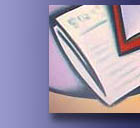| Copyright 1999 Times Newspapers Limited, The Times (London), May 24, 1999, Monday
SECTION: Features
LENGTH: 812 words
HEADLINE: New life for old machines
BYLINE: Henrietta Lake
BODY:
Forget the buzz of buying new. Upgrade the components instead, suggests Henrietta Lake.
Most people buy a cooker every decade or so, and it is not uncommon to
cling to a car for five years or more. But when it comes to personal computers,
the turnover is high because people want them to do more things - and faster.
Or they want the buzz of having the latest technology.
But before exchanging the trusty old machine for a prettily coloured
iMac, stop to weigh the costs. PCs are certainly getting cheaper and more
powerful but for a small or medium-sized company without a large technology budget, an
upgrade on an existing machine is often an option worth considering.
A PC, after all, is only the sum of its parts. Some of its components
make a huge difference to performance, particularly the size of the hard disk and
the amount of Random Access Memory (RAM), both of which are easy to install.
Processor upgrades can also be made, but they are usually expensive and
there can be compatibility problems between old and new components.
Anthony Capstick, the managing director of Instant Search Business
Information, a data search firm, and author of How to Change your Life with
Technology, has upgraded several machines at his company in Whalley,
Lancashire.
He bought a top-of-the-range 386 computer in 1991, which is still going
strong as a fax machine.
"A couple of years ago," he says, "we installed a network card, so it
now serves perfectly well as a network connection to the printer. With
computers depreciating by 40 per cent a year for tax purposes, it does not take an
accountant to work out that this is one piece of equipment that has earned
its keep. The most cost-effective and worthwhile exercises have been upgrading
the memory and hard disk."
Most modern software runs better and faster with more memory. Extra
memory provides headroom for your programs to run, and makes it less likely for
the operating system to have to resort to the slower hard drive for virtual
memory.
A sign of excessive use of the hard disk when running programmes is the
flashing of the hard-disk light on the front of the machine.
The price of memory chips has come down faster over the past five years
than computers. Memory chips can be bought at computer and electronics retailers
and cost as little as Pounds 50 for an extra 64 megabytes of memory, which can
be installed in minutes.
Rupert Selby, a computer consultant based in central London, upgrades
his ten-year-old PC every two years. He says: "Memory is so cheap nowadays that second-hand chips can be bought for Pounds 1 a megabyte. However, it is
crucial to make sure that the memory module matches your computer, otherwise your computer will blow."
Take a photograph of the inside of the machine or take the machine along when buying the memory.
If the hard disk on your PC is looking like a cluttered garage you can
solve this storage problem for relatively little money. People tend to let files accumulate on their hard drives. They install software and save files but
rarely delete any of it.
Luckily for anyone trying to install a new hard drive there are fewer compatibility issues than with memory chips. Almost any new hard drive will
work on a computer produced in the past six years. While the price of hard disks
has plummeted, with an average small business needing to spend between Pounds
50 and Pounds 100, the speed has rocketed.
It takes courage, however, to replace the existing hard drive on a PC.
If you do decide to reinstall the whole operating system, make sure you have
all the original software disks. Much simpler than replacing a hard drive is to
add a new one. This is also a good way to back up your data: it guards against
the most common cause of data loss.
Dr Pete Allamby, of Allamby & Davidson GPs in Dronfield, Derbyshire,
warns that attempting an upgrade is not for the faint-hearted. He says: "I
clearly remember swearing at the computer at 1am when the racks for the CD-Rom
drive I was installing did not match those on my computer."
If you decide that this sounds like too much work and you are really
craving a new toy, there is always the problem of how to dispose of your old
machine efficiently.
Dell, the leading direct supplier of PCs, has come up with a relatively hassle-free service called Trade Up. It will offer you a rebate on your
current PC against a new one. Your PC will be collected, the data will be wiped
from it and it will be offered to a school or charity. The minimum specification is
any make of Pentium 75 in good working condition. A typical trade-in price for
a Pentium 120 would be Pounds 80.
There is a wide variety of high street retailers, mailorder companies
and local technology suppliers who can help you decide whether an upgrade would
be the best option for your computer.
|



